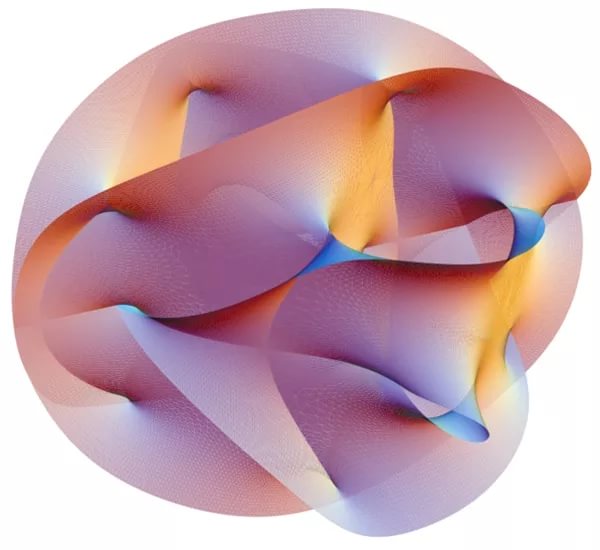
PRIMUS
Center of Foundational Physics and Complex Systems
A component of the TETRAD Institute of Complex System Dynamics
PRIMUS Center of Foundational Physics and Complex Systems is a component of the TETRAD Institute and is constituted by research focused upon Fundamental Sciences of Geometry, Mathematics, Physics, and their relations and implications in Informatics and Biology.
The focal topics of research are questions of information, form, structure, order, complexity, emergence, interconnectedness, interdependence, singularity, stability and permanence within the basic sciences. Topics of investigation range from fundamental theoretical issues in quantum and relativistic physics, cosmology, particle and condensed matter physics, topology, set theory, number theory, control theory, cybernetics, theoretical biology, genetics, epigenetics, and neuroscience.
There are four (4) primary ongoing TETRAD Institute Programs in which the PRIMUS Center is the main program lead, each being an engagement in long-term collaborative research and development.
- Reflexive Topological Dynamics - fundamental space-time, quantum gravity, quantum relativity physics
- Topological Biomolecular Dynamics - fundamentals of biophysics and emergent form, structure and organization within biological systems, including roles of quantum biological entanglement and coherence
- Topological Neurocybernetic Dynamics - research in the emergence and structure of cybernetic (control) systems and networks in brain and throughout living organisms, with particular attention to prospects of new form of computation and computing machines based upon quantum-biology principles and mechanics
- Psychosocioeconomic Dynamics - applications of foundational principles of structure and pattern recognition into synthetic intelligence and preditive anayltics
Comprising TETRAD Institute is a faculty comprised of Fellows, Mentors, Researchers and Visitors. There are organizational affiliations with multiple universities and other institutions but the Institute and PRIMUS Center are independent from any other external institution. (The mission and activities are consistent and similar to some of the original motivations and founding ideas of the Institute for Advanced Study, Perimeter, Kavli, and several others worldwide.)
Read more about the Institute organization and people HERE.
More about each of the four Programs:
(Primary Programs)
- 1. Reflexive Topological Dynamics (RTD) – theoretical investigations, encompassing quantum relativity, quantum gravity, spacetime emergence, particle emergence and cosmological topics.
- A brief overview of RTD is here in these eight abstracts from work-in-progress which is now undergoing extensive revision, but these main points are reflected in the new directions being explored and refined:
RTD Preliminary Overview
- Incorporated within the RTD Program are the Teranod and Cygnus Projects. Teranod - basic theoretical and applied research and development in the areas of controlled and low-temperature nuclear fusion. Cygnus - investigations into energy extraction and generation involving controlled photon emissions (topological condensation) and other theoretical prospects involving so-called dark energy and dark matter. Both of these projects also extensive involve the research conducted within the TND (NeoPlexus) Program.
- 2. Topological Biomolecular Dynamics (TBD) – theoretical and applied research, directed toward understanding models by which biological processes are governed by topological interactions at the level particularly of cellular and cell-virus interactions. This is an extension of basic principles and observations which are linked and grounded within RTD at the more basic levels of particle and atomic and molecular physics. Within the TBD Program is the ICMC Project - Immuno Cyto Molecular Computation/Communication, of which recent work focused upon new types of antiviral medicine development includes VESID (Viral Entry Structural Integrity Disruption).
- 3. Topological Neurocybernetic Dynamics (TND) (aka NeoPlexus) – theoretical and applied research, directed toward the technical implementation of a Generalized Heterogeneous Computing Machine (GHCM). The GHCM incorporates a non-Turing architecture (topological information resonance) of quantum-effect computing and communication, operating in a parallel systems framework with conventional and qubit-based Turing machine processors.
- 3. Psychosocioeconomic Dynamics (PSD) – theoretical and applied research, directed toward the technical implementation of Synthetic Intelligence (beyond conventional-to-date "AI"), within the context and structure of a unique mutual-learning social communications environment, OASIS (Open Autopoietic Social Intelligence Synthesis), and the Seldon Engine, an SI-type of computing system that will incorporate future GHCM computing as well as traditional Turing-computer architectures.
Read More
(Additional Related Program Activity)
- Neuroplex-C Project - focus on relationships between dysautomia and cardiovascular disease including arrhythmia
- Seldon – a TETRAD Institute project, the PRIMUS focus being upon the theoretical and computational elements including complex systems, non-linear dynamics and the use of quantum information and computation technology models.
- TETRAD Seminars (Coadunatio Program) - focused scientific workshops bringing together colleagues and associates working in these and related research areas, with an educational component addressing broader academic and popular audiences.
Selected Bibliography (compiled 2019) of Relevant Papers by Fellows, Associates, and Others (works that connect closely and/or supportively to PRIMUS research focus)
Selected, supportive, Relevant Bibliography
Website & selected bibliography, co-founder & current Director, Martin Dudziak
Food for Thought:
"If [all physicists] follow the same current fashion in expressing and thinking about ... field theory ... [the accuracy of] hypotheses being generated is limited ... possibly the chance is high that the truth lies in the fashionable direction. But on the off chance that it is in another direction - a direction obvious from an unfashionable view of field theory - who will find it? Only someone who sacrifices himself from a peculiar and unusual point of view one may have to invent for himself." - Richard Feynman, Nobel Prize lecture
| |
Seminars, Conferences, Workshops
|
